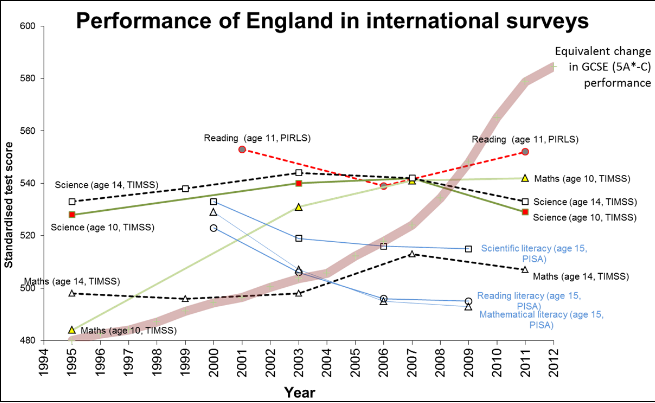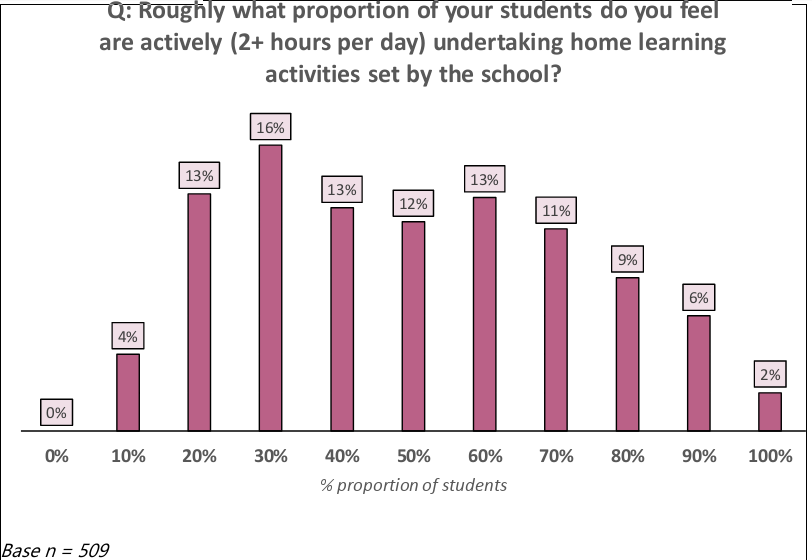covid-19 "catch-up" conundrum
2020 July 2 Thursday 17:47
As the end approaches of "Sars-CoV-2" summer term, attention towards September becomes inevitable. It is accepted that after the summer holiday, re-orientation of childrens' minds during the autumn term is naturally time consuming (and justified; if fun in the sun can't occur, when?). This year however, a potential six month lapse in active study may have happened. If mixed ability teaching variation is skilled enough, variation enhanced by this "Sars-CoV-2 pandemic" seems a big hurdle...
- At the start of gc(s)e course of study, how much pre-requisite and prior knowledge needs to be assessed?
- How much capacity is in the student's timetable for "catch-up" of content?
- For chemistry, approximately 22 hours of lesson time has been lost over the course of the "lock-down"; what rate to expect "catch-up" to be completed? Three, four, eight months per subject?
Continued failure of open source (educational) software
2020 July 6 Monday 18:35
There was an interesting thread within the mail list of cognitive-science-applicable-to-education proponents, concerning the use of visualisers (or camera to everyone else). Discussion centred around using them to teach and it became evident that once again, the educational technology domain is dominated by the usual suspects. Where is open source software?
Sadly, it would appear that open source software is nowhere to be seen. So a quick search engine query (using 'duckduckgo' of course!) revealed some old articles such as in 'jisc oss Watch' and BrightHub education that confirm a depressing reality. Despite the deeper, stronger opportunities that open source software by definition offers students to learn, there remain significant barriers (teachers, administrators, commercial vendors) to overcome.
Critical analysis of the educationalists
2020 July 7 Tuesday 18:58
Slightly late to the party, but the new podcasts by Greg Ashman make for interesting listening. Protagonists heard to date (Daisy Christodolou and Tom Bennett) remind of one modern-day benefit: technology has allowed those previously unheard to have a voice. Considering teaching is supposed to be a profession, it's a surprise that seemingly only recently people such as politicians (including their privileged advisers) and educational researchers have considered actively the opinions those at the "coal-face" the teachers. Deployment of technology is primarily driven by politics, snake-oil salesmen, with little evaluation by teachers as part of the procurement process. Similarly, it is good to see an initiative such as 'ResearchEd' grow in prominence, to question some of the (dubious?) work being done for teachers, without their input. Greater equitable dialogue between teachers, politicians, educationalists (what about parents?) can only be a good thing.
Webmention, the successor to pingback
As the move to decentralisation of the web continues, technologies such as Webmention are useful ways to acknowledge, recognise original content creators. So, to try and implement on this web site; encountered a Webmention service to trial with the aforementioned podcast series. If comprehension of the instructions is correct, the source url is that of the podcast, whilst that of the target is the corresponding site that cites the source.
Webmention: toxic schools
Posted at:Shuaib Writes
Unless you are partly motivated by the potential advance money, is there really a need to seek a publisher? Technology allows many more people to have a voice, importantly directly to an audience without a "gatekeeper". Why not try an open source software style, self-publish platform (e.g. O'Reilly, Bookboon, etc.) with a hybrid e-book and "paper print on demand" dual price provision? Good blog by the way; will comment on your subsequent posts in due course! :)
Addendum: Webmention; correction and alternative service
2020 July 8 Wednesday 11:42
It appears that the the source url is of the subject that makes the citation (e.g. this blog post), whilst the target is the url of the original content being cited. So, tried with the previous Webmention service, but that failed. However, a quick web search query revealed another; 'Mention-tech' (N.B.: the &pos;hash' attribute of the html element 'anchor' is not recognised, so do not add to the url), courtesy of Kevin Marks. Will send a webmention to him now too! :)
ResearchEd Norwich: a review — part two
2020 July 10 Friday 13:47
It is so easy with digital information, to go off on a "side-track" and enjoy a bit of seredipitous, new knowledge. A quick "grep" into a list of rss feeds revealed that a video by Adam Boxer was published previously via his blog'a chemical orthodoxy', the most intriguing part being reproduction of a comparison graph by Professor Robert Coe:

Those fully embedded in the education industry always seem nervous when international comparisons are made: it's not fair; the methodology is flawed; etc. etc.. The good thing about the blog post and video is the call for teachers to think fundamentally more deeply about what they are doing and why. Not sure about the juxtaposition of internationally comparable summative assessment and teacher inquiry. Is Mr Boxer bold enough to proclaim that there is a deficit of deep analysis by teachers in England and once this deficit is minimised, there should be a concomitant improvement in relative international comparison?
The oecd pisa methodology is a curiousity because the type of assessment appears to question students'comprehension ability to solve unfamiliar problems, not necessarily relatively more simple factual recall. For those interested, the methodology is available, as are some example resources. If given to students for personal independent study, would they appreciate being "taught beyond the (syllabus) test"? Would such higher cognitive demand improve their (notionally more important) exam performance?
Guilty truth: disappearance of students
2020 July 13 Monday 09:01
One of the cliché phrases of this Sars-CoV-2 "pandemic" is something along the lines of "...it has shone a light on..." [insert inequity of interest here].
Last week, 'Shift learning' published a "white paper"(?) about a teacher survey on time lost due to this corona virus (pdf file: https://shift-insight.co.uk/wp-content/uploads/2020/07/Shift-LessonsLostLessonsLearned-Covid-19-White-Paper-July2020.pdf). Similar reports in the Telemail also make this claim. It suggests that the home environment is not consistently conducive to learning (unsurprisingly). Have the majority of your students of your classes been active?
 If the truth be known, citc has been (un)surprised by the negligible quality and quantity of work done by students. Without too much revelation, be assured that citc can report a skewness value > 2 !!!
If the truth be known, citc has been (un)surprised by the negligible quality and quantity of work done by students. Without too much revelation, be assured that citc can report a skewness value > 2 !!!
The myth of the meritocratic oath
Admittedly a bit late to the furore, but only reading the editorial comment of this month's edition of 'Chemistry World' did citc become aware of yet another example of protestations by a European-descendant male about the decline of all things good about the world, as a direct consequence of decline in European-descendant privilege. When will Tomáš Hudlický go back to the beauty of eastern bloc communism? As stated by Philip Ball, the fact of publication acceptable is an even more damning indictment of the so-called peer-review system. So the weekend was spent reading further background information around this event: Derek Lowe's "In the pipeline" blog contains interesting commentary by those claiming to know this dinosaur; Chemical and engineering news also contains comments that question the actions of article deletion; usa nih has measured demographics of grant applications; but similarly to the journal in question, the next stage has to be actions to rectify.
Some have voice outrage at the apparent denial of free speech. Sorry, but in the modern world, this argument is weak; there is nothing to stop people from publishing contentious material themselves.
A little knowledge is a dangerous thing
2020 July 31 Friday 10:48
When it comes to chemistry, a lot of which is practical in nature, ignorance can have damaging consequences. Whilst it is laudable to have "citizen science" to promote chemistry as the fantastic subject it is, should the chemistry community be worried by the over-simplification of abstract concepts, which then have the potential to cause mis-understanding of other abstract concepts in chemistry?
Webmention: Building Methanol with Clay and Straws
Reply to Zleap, a.k.a. Paul Sutton
Consider a recent publication of a video about chemical bonds. Superficially, the suggestion may be good to use clay and (matchstick?) rods as a substitute for professional chemical bond structure model kits. However, without contextual description of chemical theories about concepts such as vespr, what would a student learn by using clay (where there is no restriction on bond angles, planes of rotations, etc.)? By coincidence, a recent edition of 'Chemistry in Education' makes reference to Johnstone's triangle of teaching chemistry by use of symbolic, microscopic (model rationalisation) and macroscopic (direct observation) representations. Unfortunately, the video producer does not appear to appreciate.
Addendum: addition of webmention, due to broken video hyperlink